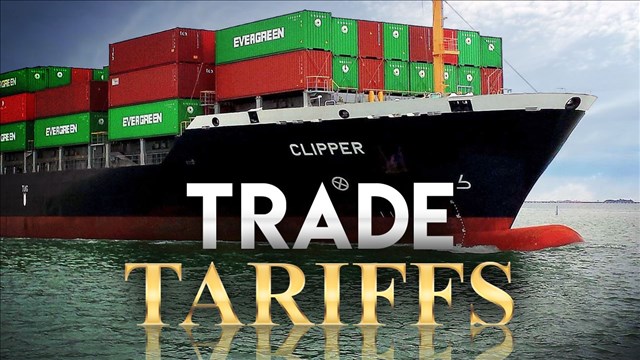Ag Web: Beef Leaders Say Tariff Plan Will Help But It Won’t Solve Problems

The US Department of Agriculture projects exports of US agricultural goods in FY 2018 will reach $139.5 Billion; Imports at $118.5 Billion
© MGN/Pixnio
by Sara Brown | July 25, 2018
Policy news grabbed the headlines yesterday, with Trump’s visit to Kansas City and USDA Secretary Sonny Perdue announcing a $12 billion relief package for farmers impacted by recent tariffs.
“NCBA looks forward to reviewing the details of the Trump Administration’s trade retaliation relief package,” says Kent Bacus, Director of International Trade for the National Cattlemen’s Beef Association.
“Trade agreements and trade enforcement are the most effective long-term solutions to the challenges faced by U.S. beef producers. For many years, U.S. beef has been a target of high tariffs and restrictive trade policies from notorious actors like China and the European Union. We support a vigorous approach to tearing down trade barriers, including non-tariff barriers that are not based on science.”
China is particularly important to the beef industry. The country reopened to U.S. beef in July 2017, after a 13-year hiatus. Until the ban in 2003, the U.S. supplied 70% of China’s beef intake, so the potential is great. But there is still a lot of work to be done to create the open business channels necessary to expand the market.
“Removing China’s highly-restrictive barriers on U.S. beef exports could unlock the full potential of that market and result in $4 billion in annual sales. Here at home, beef producers need relief from onerous federal regulations that undermine their businesses. Let’s start by fixing the restrictive hours-of-service rules for livestock haulers, modernizing the Endangered Species Act, and ending the 2015 Waters of the United States rule once-and-for-all.”
Differences in Strategy
As details are still to come, other beef leaders also weighed in about the tariff situation.
“We support helping actual farmers and ranchers whose products are reduced in price due to retaliatory tariffs. However, I believe the multinational grain traders and meat packers, who wield considerable buying power for agricultural commodities and who oppose the President’s trade reforms, are purposely exacerbating the real price effects in order to create a louder outcry at the grassroots level. We need to fundamentally change our nation’s failed trade strategy and tariffs are the first step to stop the unfair trade practices that have caused an unnecessary exodus of U.S. farmers and ranchers,” says Bill Bullard, R-CALF CEO.
“The U.S. is acting like a third-world country when it exports raw commodities like soybeans and corn, and even oil and coal, rather than to develop domestic industries to add value to those products before they are exported. China buys soybeans to feed livestock. We don’t produce enough beef in America to meet domestic demand. We should be producing more beef but we can’t because every time the price-point rises to the level that would encourage the U.S. to expand production, we import cheaper cattle and cheaper beef to curb the increased demand underpinning the price increase. So, our domestic industries shrink while we encourage overproduction and overcapacity in other countries. The pendulum has swung too far during the past quarter of a century and it will take time to recover from the serious damage the globalists have caused.”